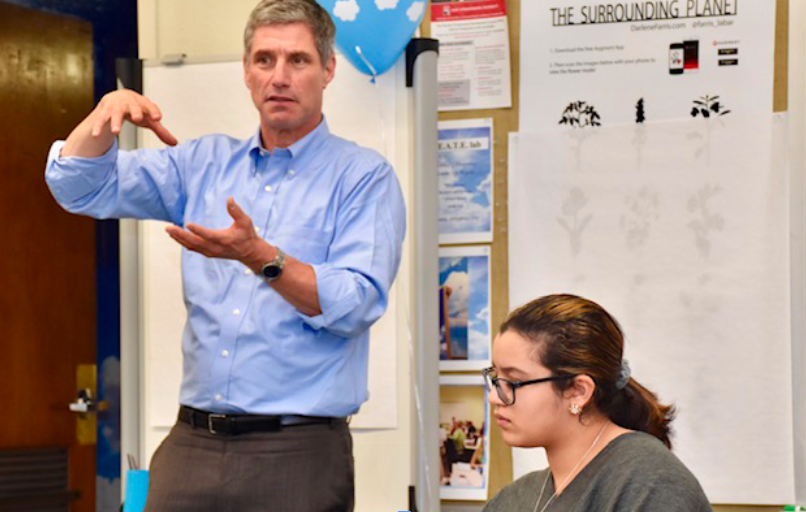
Charlese Freeman
Student Life Editor
PASSHE Chancellor Daniel Greenstein announced his new vision of campus collaboration among the 14 state schools at his first State of the System address. On Jan. 16 in Harrisburg Chancellor Greenstein immediately spoke of plans to reshape the system into a more cost-efficient and productive operation.
Greenstein, only five months into his positions, has visited all 14 state schools and made goals to implement communication and cheaper tuition rates. The chancellor’s changes include combining the universities’ administrative and business functions and partnering with K-12 schools and two-year institutions to meet the demand of the workforce.
Chancellor Greenstein had an idea for all 14 state schools to leverage each another’s individual resources. The system’s “transformation” is currently in the developmental stage, but many administrative teams within the institutions are in agreement with Greenstein’s endeavors.
“[We] are grateful for the time Chancellor Greenstein already has given us, and for his invitation to participate in the System Redesign process. We welcome the opportunity to contribute to this important endeavor,” said the president of the Pennsylvania Association of Councils of Trustees, Jeff Smith.
Board Chair Cynthia D. Shapira admits that Daniel Greenstein was hired because of his extensive knowledge in the educational system and his leadership abilities. The System Redesign process has been underway before Greenstein assumed the position, but Shapira is optimistic in his efforts because of his enthusiasm for the students and his new role.
Greenstein says he wants to focus the system transformation on becoming a “sharing system” – a system that collectively utilizes many of its talents. He has intrigued some students, but some have concerns about the program. During his campus visits, he noted that the system acts as a divided one and not as one entity.
“I think this is a great idea. It is putting the students and their needs first, saving them time and money. It also helps schools feel more connected,” said ESU senior Naijaa Michel.
The chancellor’s strategy is different from those of his predecessors. Dr. Michael Driscoll, president of Indiana University of Pennsylvania, says that Greenstein is a “different” kind of leader, highlighting his listening skills and eager attitude. Chancellor Greenstein encourages students from all the state universities to weigh in on the conversation.
“Well it sounds like that means we’re going to be taking core major classes on a certain campus then taking any extra classes online at other campuses,” said Ace Walker, a junior at Shippensburg University. “Which would be really cool on one hand but pretty dangerous on the other because if each school slowly starts to become specialized in a certain major then people would only really be able to go to that school.”
State system spokesman, Kenn Marshall, encouraged faculty and students to communicate with the chancellor via his personal blog. Marshall says the chancellor is willing to answer any questions about the system redesign.
In a phone interview, Marshall said “he’s really trying to create a more collaborative system. There is some of that happening right now. For instance, payroll is done in one single place, but he wants more administrative and academic programs.”
Chancellor Greenstein wants to reduce the time it takes students to graduate. His proposal to introduce more supplemental programming and cross-programming is to assist students with graduation time.
The idea of a well-rounded student population, ready for the workforce, is one that Greenstein focused on during his fall visits to the 14 universities. The overall transformation is centered on reprioritizing and using current resources in an effective manner.
With the constant support and approval from students and faculty, chancellor Greenstein’s vision can make a greater impact. “The days of modest adjustments are over. We won’t tweak our way out of this one,” Greenstein said. “The challenges we face are too great.”
Email Charlese at:
cfreeman2@live.esu.edu

